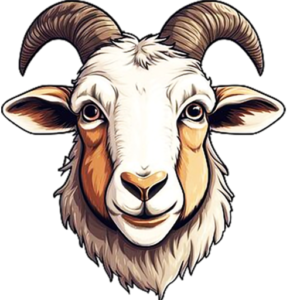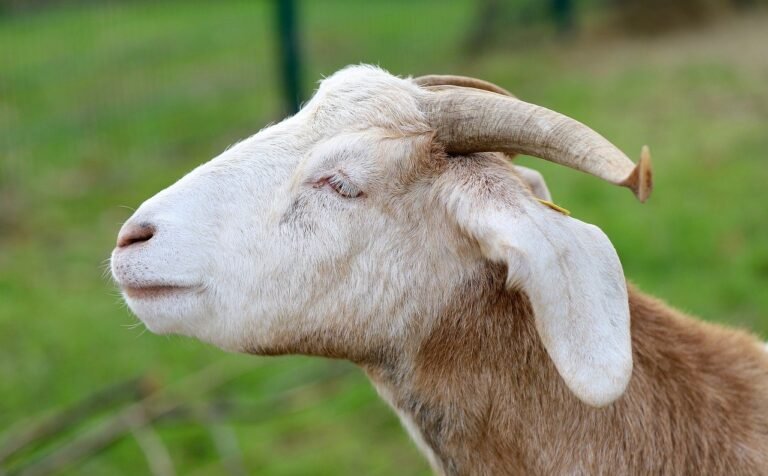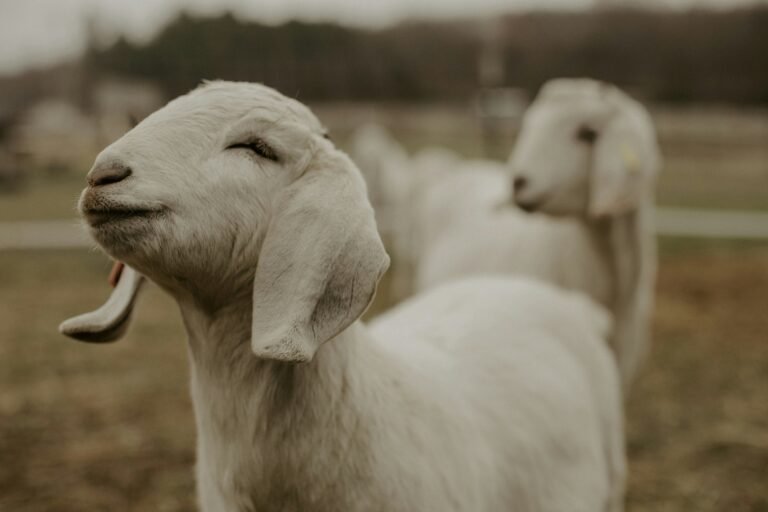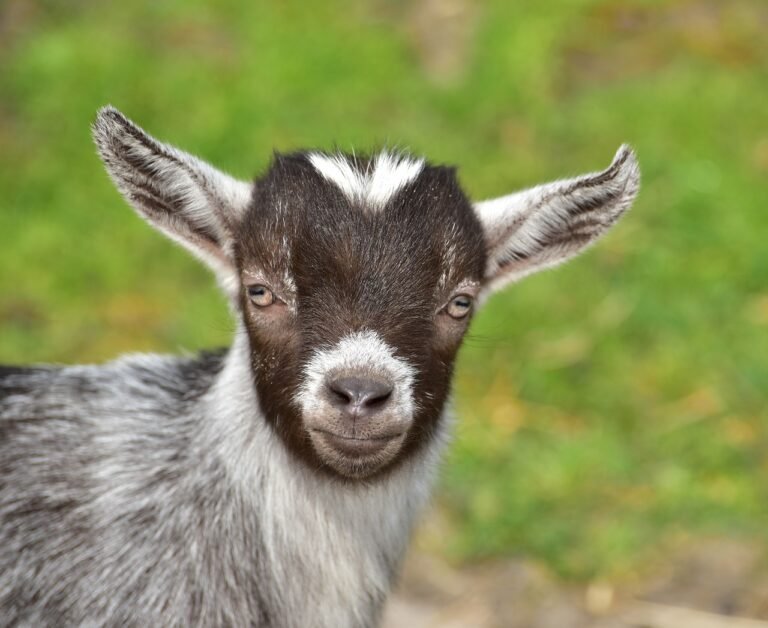
Pygmy Goat: Top Characteristics, Origins and Major Uses
Pygmy goats are fascinating creatures that have captivated the hearts of many animal lovers due to their small size and charming demeanor. Originally from West Africa, these miniature goats have found their way into various homes and farms worldwide, gaining popularity for their friendly nature, adaptability, and multiple uses. In this article, we will explore the essential characteristics, origins, and primary uses of pygmy goats, focusing on their health, care, and unique features.
Origins and Breeds
Scientifically known as Capra aegagrus hircus, pygmy goats have an interesting history. They originated in West Africa and were introduced to the United States in the 1950s. Since then, these miniature goats have been bred to become one of the most manageable and amiable breeds available for pet owners and farmers alike. There are several breeds of pygmy goats, including the African Pygmy, Cameroon Dwarf, and Nigerian Dwarf. These different breeds share many similarities but have unique characteristics that make them stand out.
Physical Characteristics and Appearance
One of the primary attractions of pygmy goats is their pint-sized stature. They typically stand between 16 to 23 inches at the shoulder, making them a fraction of the size of standard goat breeds. Despite their small size, pygmy goats are hardy and well-suited for a range of climates. They come in a variety of colors, including black, brown, white, and caramel, often adorned with distinctive markings.
Pygmy goats are known for their dense, short coats, which can be either straight or wavy. Both male and female pygmy goats may have horns, which usually curve backward. For safety reasons, some owners choose to disbud or remove the horns. Another distinct feature is their upright ears, which contribute to their expressive and charming appearance.
Personality and Temperament
These small goats are not only visually appealing but also have a playful and curious demeanor. Pygmy goats are friendly and social animals that enjoy interacting with humans and other animals. Their antics can be amusing, and their inquisitive nature often leads them to explore their surroundings. Known for their intelligence, pygmy goats can be trained to follow basic commands, especially with positive reinforcement techniques like treats and praise.
Their social nature makes them excellent companions for families. They tend to form strong bonds with their caretakers, which adds to their appeal as pets. Pygmy goats are also intelligent enough to learn tricks and respond to their names, making them engaging and interactive animals.

Housing and Care
When it comes to housing, pygmy goats require adequate space to roam and explore. While they are small, they still need a secure, fenced area to prevent them from wandering. Shelter is another critical aspect of their care, as they need protection from extreme weather conditions. A well-ventilated barn or shed will serve as a safe place for them to retreat from harsh temperatures, rain, and wind.
A balanced diet is crucial for maintaining the health of pygmy goats. Their primary diet should consist of high-quality hay, supplemented with grains and access to fresh water. Mineral supplements may also be necessary to ensure they receive all the nutrients they need. Regular veterinary care is essential to keep them healthy, including checkups, vaccinations, and parasite control. Their hooves should also be trimmed regularly to prevent overgrowth.
Uses of Pygmy Goats
– Companionship: Pygmy goats are popular as pets due to their friendly and amiable nature. They make excellent companions for families, especially those with children, because of their playful and affectionate demeanor.
– Exhibitions: Many goat enthusiasts participate in exhibitions showcasing their pygmy goats. These events highlight the physical characteristics and appearance of the goats, including their distinctive colors and markings.
– Weed Control: Known as living lawnmowers, pygmy goats are effective for weed control. They graze on overgrown vegetation, shrubs, and grass, helping to manage lawns and fields naturally.
– Grazing: Their small size and manageable nature make pygmy goats ideal for grazing. They are used to keep lawns and fields in check, as they nibble on various plants and shrubs, reducing the need for mechanical lawnmowers.
– Milk Production: Although not as prolific as larger dairy breeds, pygmy goats produce nutritious milk. Their milk is rich in vitamins, minerals, and proteins, making it a valuable product for small-scale production of cheese and yogurt.
– Training and Tricks: Pygmy goats are intelligent and can be trained to perform tricks and respond to commands using positive reinforcement techniques like treats and praise. This makes them engaging and interactive animals.
– Low Maintenance: Their low maintenance needs, including easy care and economical feed, make pygmy goats a practical choice. They are easy to transport and require minimal effort to care for compared to larger livestock.
– Affection and Bonding: Pygmy goats enjoy affection and often seek attention from their owners. Their ability to form strong bonds with humans adds to their appeal as pets and companions.
– Mental Stimulation: Enrichment activities such as toys and puzzle items help keep pygmy goats mentally stimulated. Their intelligence makes them responsive to various forms of mental stimulation, enhancing their overall well-being.
– Social Interaction: Pygmy goats thrive when kept in pairs or groups. They are social animals that enjoy interacting with both humans and other goats, which helps prevent loneliness and boredom.
These uses highlight the versatility and benefits of pygmy goats, showcasing their value as both practical animals and beloved pets.
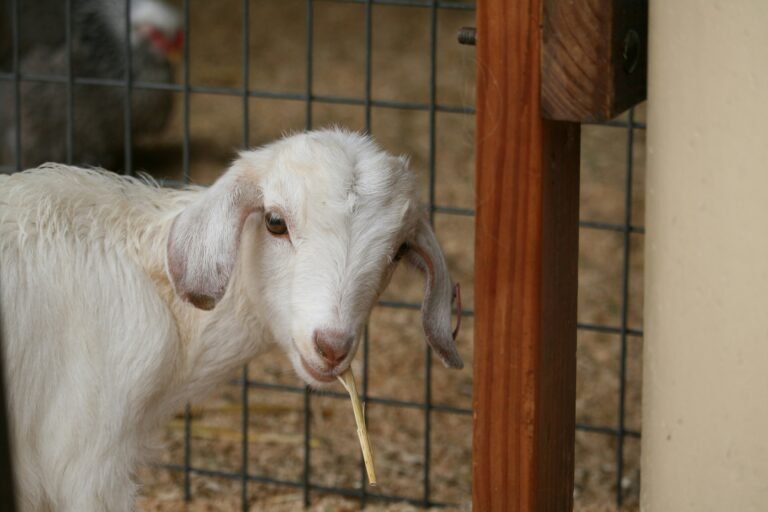
Here’s a concise table chart of all the characteristics and uses of pygmy goats:
| Characteristic/Use | Description |
|---|---|
| Companionship | Pygmy goats are friendly and amiable pets, excellent companions for families and children due to their playful and affectionate demeanor. |
| Exhibitions | Enthusiasts showcase pygmy goats in exhibitions, highlighting their physical characteristics and distinctive appearance. |
| Weed Control | Effective for weed control, pygmy goats graze on overgrown vegetation, shrubs, and grass, managing lawns and fields naturally. |
| Grazing | Their small size and manageable nature make pygmy goats ideal for grazing, helping to keep lawns and fields in check. |
| Milk Production | Produce nutritious milk rich in vitamins, minerals, and proteins. Suitable for small-scale production of cheese and yogurt. |
| Training and Tricks | Intelligent pygmy goats can be trained to perform tricks and respond to commands using positive reinforcement techniques. |
| Low Maintenance | Low maintenance needs, easy care, and economical feed make pygmy goats a practical choice compared to larger livestock. |
| Affection and Bonding | Enjoy affection and seek attention from their owners, forming strong bonds and enhancing their appeal as pets. |
| Mental Stimulation | Enrichment activities like toys and puzzles keep pygmy goats mentally stimulated, responsive to mental stimulation. |
| Social Interaction | Thrive in pairs or groups, enjoying interaction with humans and other goats, preventing loneliness and boredom. |
Pygmy Goats as Pets
One of the reasons pygmy goats have become so popular as pets is their low maintenance needs. They are economical to feed, grazing on a variety of plants and shrubs, which reduces the cost of their diet. Their hardy constitution allows them to thrive in different climates, making them a practical choice for many households.
Their intelligence and trainability also contribute to their appeal as pets. Pygmy goats can learn tricks and mental stimulation activities, such as puzzle toys, providing both entertainment for themselves and their owners. Their affectionate nature means they enjoy attention and interaction, often seeking out affection by being brushed or petted. This affectionate behavior helps to create a strong bond between the goat and its owner.
Exercise and Enrichment
Though small, pygmy goats are active and agile animals. They require regular exercise to stay healthy and maintain their physical condition. A secure outdoor space is ideal for allowing them to roam, climb, and play. Enrichment activities such as obstacles, platforms, or toys can keep them entertained and mentally stimulated. Without adequate exercise and enrichment, pygmy goats may become bored, which can lead to undesirable behaviors.
Lifespan and Health
Pygmy goats typically have a lifespan of 10 to 15 years, making them long-term companions for those who choose to adopt them. However, their lifespan and overall health depend heavily on proper care, diet, and veterinary attention. Routine veterinary care, including vaccinations and parasite management, is vital to their well-being. Grooming, such as regular brushing of their coats and hoof trimming, is also necessary to prevent parasites and keep them clean and healthy.

Milk Production
While pygmy goats are not as prolific milk producers as larger dairy breeds, they are still valued for their milk. Their milk is nutritious, containing high levels of vitamins, minerals, and proteins, making it an excellent alternative to cow’s milk for some people. Pygmy goat milk is known for being easier to digest and having a mild, sweet flavor with a creamy texture. It can be used in various culinary applications, including making cheese and yogurt.
Social Interaction and Companionship
Pygmy goats thrive on social interaction. They are happiest when kept in pairs or small groups, as loneliness can lead to boredom and behavioral issues. Spending quality time with your goats, whether through gentle petting or play, strengthens the bond and improves their mental well-being. Training pygmy goats using positive reinforcement techniques like treats and praise helps to cultivate good behavior and make them more adaptable to domestic life.
Conclusion
Pygmy goats are truly remarkable animals, offering companionship, entertainment, and practical benefits such as grazing. Their small size, friendly temperament, and low maintenance needs make them an excellent choice for families, hobby farmers, and goat enthusiasts. With proper care, including housing, nutrition, veterinary attention, and social interaction, pygmy goats can live long, happy, and healthy lives. Their intelligence and affectionate nature also add to the joy of owning them, making them beloved pets and companions for many.
While pygmy goats do require some research and understanding of their specific care needs, the rewards of owning these delightful animals are well worth the effort. Whether as pets, companions, or for small-scale milk production, pygmy goats bring joy and laughter to the lives of their owners, making them a wonderful addition to any home or farm.
RELATED POSTS:
At Goaty Pedia, we’re passionate about all goat things! Our mission is to be the ultimate resource for goat enthusiasts, breeders, and caretakers who want to learn about and care for these remarkable animals. Thanks for visiting.
Web Crew © 2024 All Rights Reserved.
